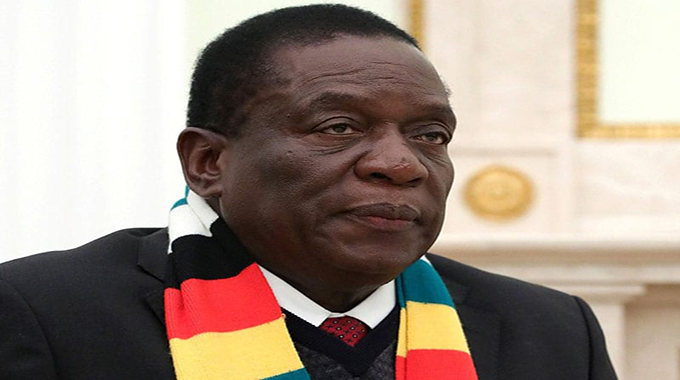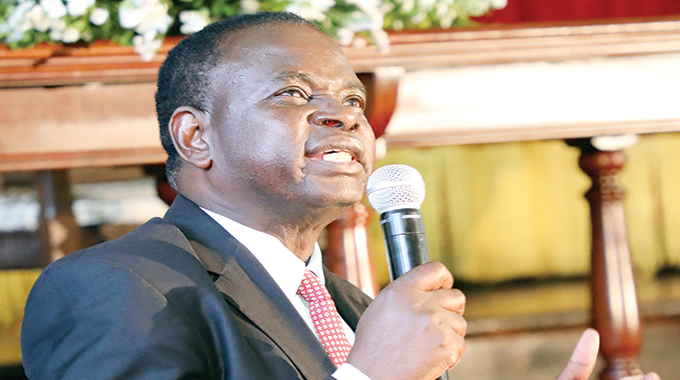Editorial comment: Giant strides made in Zim democratic reforms

PRESIDENT Mnangagwa has made democratic reforms and opening up the country to foreign direct investment top of his priorities with the various arms of Government — the executive, legislature and judiciary — seized with implementing reforms to aid economic growth.
While Parliament is formulating and passing laws to accelerate the ease of doing business, opening up the media landscape and increasing civil liberties, the judiciary has been playing its part by prosecuting those who engage in corruption and other rent seeking behaviour.
In the media fraternity, three Bills have been tabled in Cabinet among them the Zimbabwe Media Commission Bill which was approved last month.
The Bill is part of the ongoing reforms to align the country’s laws to the Constitution and arises from the repeal of the Access to Information and Protection of Privacy Act, commonly known as AIPPA.
Specifically, the Bill provides for the establishment of the Zimbabwe Media Commission, its powers and functions as well as the financing thereof.
It seeks to give rise to a vibrant, non-polarised, diverse and pluralistic media sector which positively contributes to the deepening of the country’s democratic processes and the socio-economic development agenda.
In May, Cabinet approved the Broadcasting Services Amendment Bill which seeks to harmonise the Broadcasting Services Act (Chapter 12:06) with Section 61 of the Constitution of Zimbabwe. The Bill provides that every person has the right to freedom of expression and freedom of media.
Included in the Bill are the freedom to establish broadcasting and other electronic media of communication, subject only to State licensing procedures. In addition, all state-owned media of communications must be impartial and free to determine independently the editorial content of their broadcasts.
It is also proposes that Section 21 of the principal Act be amended to indicate that the role of BAZ is to regulate and supervise rather than to control broadcasting services bands.
According to a draft of the Bill, the objectives of the Broadcasting Services Act will be broadened to address the diversity of opinion, ideas, values, artistic, creativity and talent of citizens in programming in order to advance the freedom of expression, multi-culturalism and linguistic plurality.
On the economic front, Government has implemented far reaching reforms to attract FDI and accelerate the ease of doing business.
Massive progress has been recorded and this includes procedures for property registration being reduced from five to four, the establishment of a credit registry, an increase in the number of small claims courts from two to 10, the establishment of four commercial courts and a 41 percent reduction in compliance checkpoints at Beitbridge Border Post.
The reforms, which involve the removal of regulatory, transactional and administrative hurdles in doing business, have also received a major boost from Government’s legislative agenda which has already seen the passing of the Insolvency Bill as well as several other pieces of legislation including the Zimbabwe Investment and Development Agency (ZIDA) Bill which will ensure that all investments are processed under one roof.
Under the Transitional Stabilisation Programme, there are no arbitrary policy reversals, contradictory policy announcements and interpretation by different agencies of the same Government.
Pursuant to this, progress on the legislative agenda began with the passing of the Insolvency Bill and Shop Licence Bill in May last year.
The Insolvency Bill provides for the administration of insolvent and assigned estates and the consolidation of insolvency legislation in Zimbabwe while the Shop Licence Bill seeks to remove impediments in getting a business licence.
Also passed last year was the Public Finance Management (Amendment) Act which enhances transparency and accountability in the management of public resources and ensure that resources collected by public entities are used for delivering vital public services efficiently.
The ZIDA Bill tabled and gazetted before Parliament on 5 April, amalgamates three investment agencies — Zimbabwe Investment Authority, Joint Ventures Unit and Special Economic Zones Authority — into a one-stop shop.
The Census and Statistics Amendment Act allows for dissemination of micro data to data users, while the Companies and other Business Entities Bill will modernise the registration and management of companies and improve corporate governance.
We are glad that the United Nations and the United Kingdom have hailed these reforms as this gives impetus to the ongoing re-engagement efforts being spearheaded by the Minister of Foreign Affairs and International Trade, Dr Sibusiso Moyo, who is in London on a four-day visit to lure investors and strengthen the re-engagement drive.
On Wednesday, both the UN and UK gave the reforms a thumbs up with British Minister for Africa, Ms Harriet Baldwin, saying her country expects to co-operate better and more with Zimbabwe following her meeting with Dr Moyo in London.
Back home, UN Communications specialist, Mr Sirak Gebrehiwot, said the UN was happy with progress made by the Government with regards to media freedom.
We welcome the endorsement of the reform process by the UN and UK and hope that this will lead to a gradual strengthening of relations and easing of sanctions on Zimbabwe.








Comments